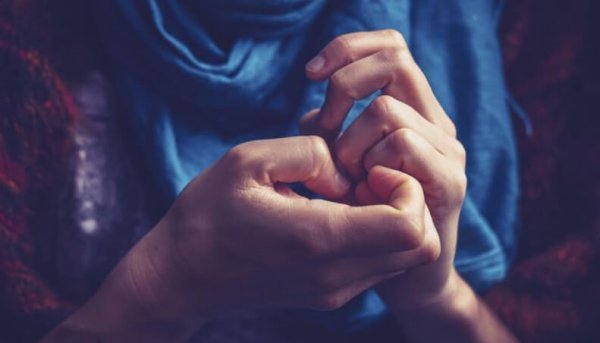5 Habits of People with Anxiety


Written and verified by the psychologist Gema Sánchez Cuevas
Some parts of your personality are not actually parts of your personality; they are attitudes or habits that come from anxiety and blend right in with your true personality.
This mixture can be dangerous. It may even make you appear strange or rude, thus making your life even more difficult when people judge you based on those actions, without knowing what’s really going on.
Below, let’s analyze these habits. Because getting to know them will help us better manage our anxiety and our emotions. It will help us to be our best selves and show our true personality.
“Fear sharpens the senses, anxiety paralyses them”
-Kurt Goldstein-
1.- Apologizing for everything
People with anxiety feel like they’re always bothering others or that they have to constantly please people. That’s why they apologize for everything. They apologize constantly, for everything and for nothing, and it seems like a habit that they cannot control.
This habit is unhealthy and annoying to people. They feel uncomfortable not knowing what to say to a person who apologizes for tiny things, even things outside of their control.

2.- Taking everything very personally
This habit is somewhat linked to the previous one. When someone says something to them, they go over it repeatedly in their head. They may think about it all day, building it up so much that, however small it may have started out, it ends up being intrusive and annoying… all when it was just an innocent comment. Nothing more.
It turns into a vicious circle. They’re anxious about the comment and overthinking it only makes the anxiety last longer.
“Worry does not eliminate the pain of tomorrow, but it does eliminate the power of today”.
-Corrie ten Boom-
3.- Leaving or stopping conversations abruptly
Anxiety often gets the best of people and gets them in the habit of avoidance or flight when they feel a threat, or like the situation is overwhelming.
Another consequence of anxiety is that it causes the person to focus on themselves and what is causing their anxiety, removing them completely from the rest of the stimuli in their environment, such as a conversation.
It’s not that people don’t appreciate company. It’s just that anxiety overcomes them and the best solution they can come up with is to leave the place or think about something else, even if this gives the impression that they are rude people.
4.- Fantasizing about the worst-case scenario
This is a habit that just creates more anxiety. While we’ve all imagined the worst-case scenario at some point, people with anxiety have the habit of overestimating the probability of worst-case scenarios.
Always thinking the worst will lead to physical and psychological issues, chronic fatigue and problems with relationships.
They believe that anticipating the future protects them and prevents anxiety, but it is the other way around. It generates more fear and uncertainty and increases anxiety because they focus only on the bad. They do not enjoy things and then that bad scenario often ends up coming true.

We can examine situations carefully and evaluate them as much as possible, but we must be clear that we cannot predict the future or know what is going to happen. Avoiding situations does not protect us from them, it only limits our enjoyment of life.
“Each morning has two handles, we can grab the day using the handle of anxiety or the handle of faith.”
-Henry Ward Beecher-
5.- Taking a long time to make decisions
People with anxiety tend to analyse situations down to the smallest detail, which makes it almost impossible for them to make a decision. Even if it is a simple decision where there are no good or bad decisions, like what to wear that day or what to eat.
This “habit” doesn’t just affect the person, it can affect their colleagues, significant other, and children.
Making decisions can generate anxiety in all of us. We are all afraid to make mistakes, but the habit of over-analyzing things down to the smallest detail and being indecisive tends to generate more anxiety than actually making a decision, maybe making a mistake and then rectifying it.
We cannot escape or delegate many of the decisions we face. Deciding is thus an everyday thing, the result of which will be determined by different variables. Some of them we will not control, such as luck, but there will be others that we will, such as attitude, and it is on them that we have to focus our work.
Bad habits generate and feed anxiety
Sometimes the bad habits of people with anxiety can just make things worse. It’s good to be aware of them, and it can also be useful to talk openly about anxiety when it affects us so that others can help us.

You don’t have to work on these habits alone. People with anxiety, like many other people, believe that no one can help them with their problems. They have trouble asking for help.
But sharing how we feel will actually keep others from making wrong assumptions about us. They’ll understand why you do what you do, and they can help.
This text is provided for informational purposes only and does not replace consultation with a professional. If in doubt, consult your specialist.








